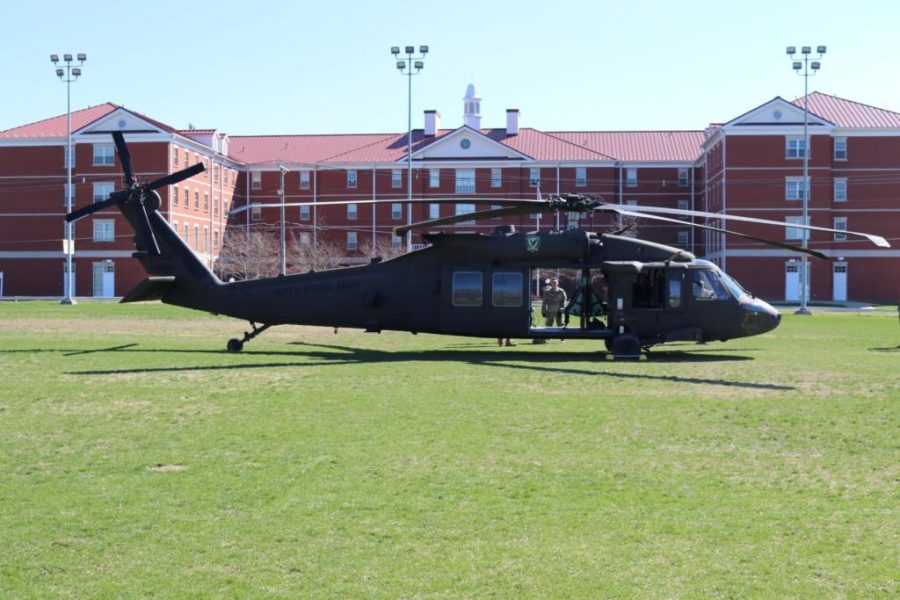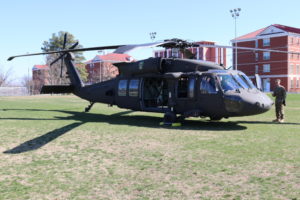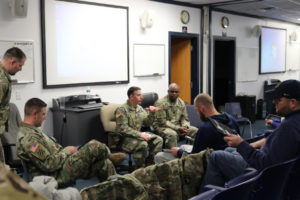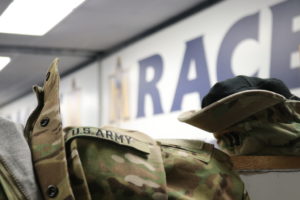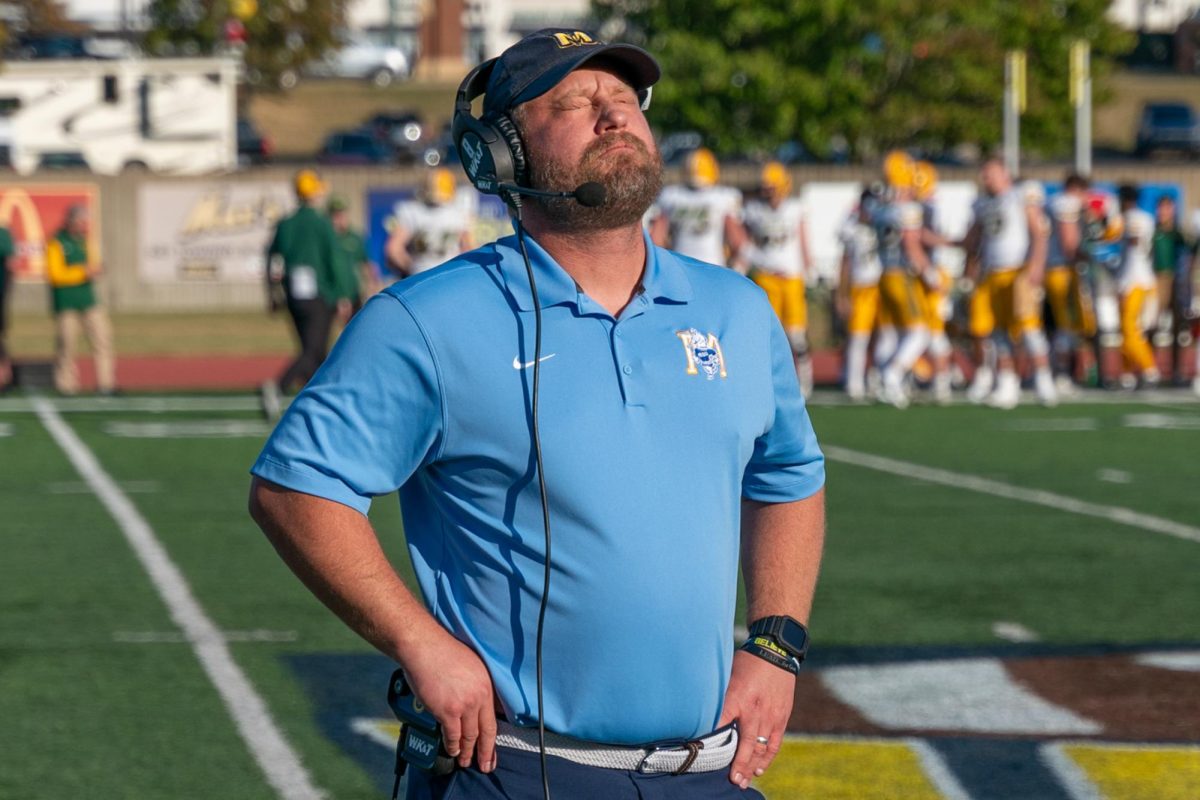Story by Keith Jaco, Staff writer
Murray State Head Coach Mitch Stewart wants his players to have great character as well as fundamental football skills.
For nearly two years the 101st combat aviation brigade from the 101st airborne air assault division at Fort Campbell, Kentucky, has partnered with the city of Murray, as well as several Murray State sports teams.
Unique to Fort Campbell, the 101st airborne division exhibits a valuable relationship with its community through this outreach program. As part of that relationship, members of the brigade recently visited Murray State to meet with the football and softball teams and the ROTC cadets.
Brigade Public Affairs Officer Captain Kris Sibbaluca along with nine other soldiers made a grand entrance on campus in a UH-60 Black Hawk helicopter, landing on the intramural fields across from the residential colleges.
The soldiers met with cadets from the ROTC program, allowed the community to stop by and view the inside of the helicopter, and held a leadership forum with the football team.
“We’ve been working with Murray State University since about May 2016,” Sibbaluca said. “Working with the football team, the softball team, ROTC department and even the city.”
In the summer of 2016, the brigade commander invited the football and softball teams to visit Fort Campbell.
“They were gracious enough to let us tour their campus,” Stewart said. “We went down and scaled the wall, got to sit in helicopters. The relationship has just kind of built from there.”
Stewart has regular communication with the leaders of the brigade, including Colonel Craig Alia. After each game during the season, Stewart said he would receive an email from Alia asking how the team was doing and talking about what he saw in the game.
“It has been a tremendous asset for me,” Stewart said.
Aside from having a sharp football IQ, Stewart also stresses the importance of learning life skills. He implemented a weekly program to help develop the character of his athletes, and the visit from the military did just that.
Every Wednesday the coaches do character education with the team. Stewart said it could be anything from teaching the players how to swim, how to budget, how to change a tire or even how to write a resume.
“This was one we put on the list,” Stewart said. “[We] wanted them to come over and talk leadership and adversity and team building and those type things. What better organization to do that?”
Leadership events such as these teach athletes how to overcome adversity and create mental toughness, both similar things that soldiers deal with in the military.
However, the relationship between the players and the soldiers is reciprocal. Alia said he looks forward to learning from this partnership each year.
“It’s an exchange,” Alia said. “We deal with the same demographic, 18-22 year old young men and women. Some of it is us getting from them, ‘Hey, how did they motivate them?’ or ‘What were they able to say to get the young men and women to buy in to come to Murray?’ or ‘What inspires them?’ What motivates them so we can learn from what they are doing on a day to day basis as well?”
Student athletes should learn from all of their experiences in college, implementing lessons learned on and off the field, including the message these soldiers had to share with the team.
“We are very fortunate to have that relationship, that they would take time out of their schedules, because they’re probably the most busy men and women in the world,” Stewart said. “For them to carve out an hour, hour and a half to come spend with us. [We are] just very grateful for them.”
Stewart said he hopes that the partnership will also be beneficial to the military.
“Ultimately, I hope it gives the U.S. Army a chance to recruit some of our guys,” Stewart said. “Some of these guys, when they get a diploma and finish their time here, you know, hopefully we have developed guys that have the qualities that the U.S. Army is looking for. Maybe they can go into that world and that realm and continue to lead people.”
Stewart said this leadership forum helps everyone, even if they are not in a leadership role on the team.
“Some of these guys that can hopefully step into those leadership roles or at least the ones that maybe won’t step into that, but understand what that leadership role is and it helps them be a better follower.”
This unit works only with Murray, Kentucky, and Murray State University. Each brigade has a community nearby that it partners with as part of the division’s outreach initiative. Alia said this allows civilians to connect with the soldiers and take away some of the mystery of what the military does.
While some of the soldiers were making their first visits to Murray State’s campus, it was a bit of a family reunion for Alia.
“I am fortunate that we are partnering with Murray because my son goes here,” Alia said. “So it makes it very easy for me. I’ll go and see him and have lunch today with him.”
The brigade returned to Murray to meet with the women’s softball team for a leadership forum over spring break. This one-of-a-kind partnership has become tradition and one that players, coaches and soldiers hope to continue.



























































































